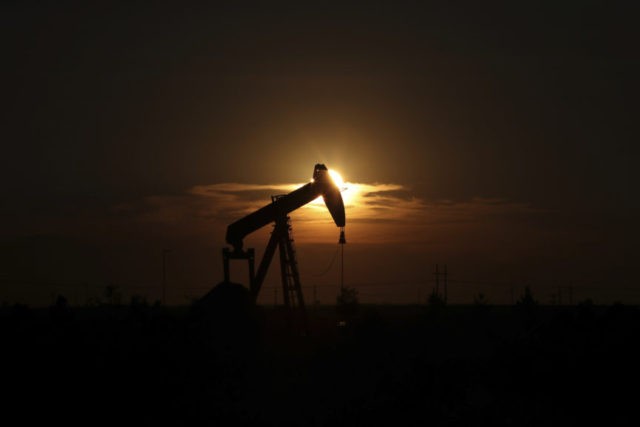Saudi oil executives inked multi-billion dollar deals with companies to explore building petrochemical facilities along the Texas Gulf Coast. Essentially, they hope to capitalize on the U.S. oil and gas boom, largely fueled by shale drilling in the Permian Basin.
Saudi Aramco plans to invest between $8 billion and $10 billion into their Houston-area petrochemicals operations, according to the Houston Chronicle. To accomplish this, they entered into two exploratory agreements on Saturday — one with British-based oil equipment manufacturer TechnipFMC and the other with Illinois-headquartered Honeywell UOP.
Aramco’s Houston-based refining company, Motiva Enterprises LLC, will evaluate TechnipFMC’s mixed-feed ethylene production technologies, a feedstock used to manufacture many types of plastics. Then, Motiva will examine Honeywell UOP’s production of chemical feedstock technologies for benzene and paraxylene, which are processed into textiles for nylon and polyester products, respectively.
Motiva owns and operates the largest U.S. oil refinery located in Port Arthur. It also runs the largest lubricant plant stateside. The Saudis’ goal is to build a manufacturing complex at this site. The company described these deals as a first step in their expansion.
“These agreements signal our plans for expansion into petrochemicals,” said Motiva CEO and President Brian Coffman, in a prepared statement. “We are excited to work more closely with these leaders in the industry to further assess our opportunities for investment.”
Motiva officials indicated that a final investment decision whether or not to create a multi-billion petrochemical plant will not be made until 2019 and is “dependent on strong economics, competitive incentives, and regulatory support.”
Saudi Crown Prince Mohammed bin Salman, nearing the end of a two week visit to the U.S., attended the signings. Also present were Saudi Energy Minister Khalid al-Falih and U.S. Energy Secretary and former Texas Governor Rick Perry.
These agreements also come at a time when Saudi Arabia says it seeks to diversify its economy. Saudi Vision 2030, unveiled in 2016, is a blueprint for the kingdom to become less dependent on oil production. Until this year, 90 percent of the Saudi government’s budget and roughly 45 percent of its GDP came from oil exports. In January, the country announced its 2018 budget, reflecting only 50 percent based on oil revenues, 30 percent from non-oil revenues, 12 percent from public debt, and eight percent from government funds, according to the Saudi government-owned Al Arabiya News.
Shifts in the energy sector certainly influenced this diversification. The Organization of Petroleum Exporting Countries (OPEC) has struggled with the surge in U.S. shale production for almost a decade, says the Midland Reporter-Telegram, which suggests OPEC may have created its own nemesis when, in 2014, it flooded the market and oil prices tumbled. However, instead of killing the competition, shale producers in the Permian Basin drilled leaner and faster. They bounced back and thrived with oil then priced at $50 per barrel.
In January, the Federal Reserve Bank of Dallas anticipated that by year-end 2018 West Texas Intermediate (WTI) crude oil would close at $59 a barrel. WTI last traded at $62.32 per barrel on the New York Mercantile Exchange.
Two years ago, Rystad Energy, an independent oil and gas consulting firm, released data that revealed Texas held more than 60 billion barrels of shale oil. Later, Breitbart Texas reported the U.S. Geological Survey discovered the largest shale formation of its kind in the Midland-Odessa region. It may yield 20 billion barrels of crude oil, 16 trillion cubic feet of natural gas, and 1.6 billion barrels of natural gas liquids.
Over the weekend, Bloomberg reported that Saudi Basic Industries Corp. (SABIC), the Middle East’s largest petrochemicals maker, announced plans to build a Houston-area headquarters for its Western Hemisphere operations.
Follow Merrill Hope, a member of the original Breitbart Texas team, on Twitter.

COMMENTS
Please let us know if you're having issues with commenting.